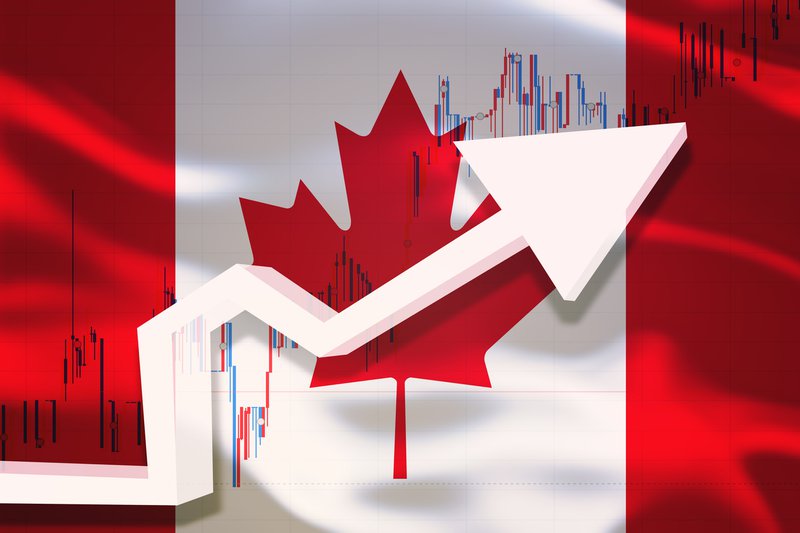
David Parkinson
June 18, 2020
The Bank of Canada expects a two-phase recovery for the Canadian economy, with the initial “reopening” phase from COVID shutdowns to be followed by a slower, bumpier, and more unpredictable “recuperation” phase, deputy governor Lawrence Schembri said Thursday.
Mr. Schembri added that consumer behaviour, which has been dramatically disrupted by the pandemic containment measures, will be a key to the central bank as it tries to get a read on the recovery in its relatively early days.

“In particular, we are interested in the speed, strength, and breadth of the pickup in economic activity during the recovery period. Consumption and housing will be critical to the recovery as they normally represent roughly two-thirds of economic activity in Canada,” he said in a speech by video-conference to the Greater Saskatoon Chamber of Commerce.
Mr. Schembri said the early signs from the reopening, which is already underway, show a “partial” rebound in consumer spending, incomes, and consumer confidence. Households are able to buy goods and services that were largely unavailable during the lockdown, and businesses have begun to rehire staff.
However, he cautioned, the recovery beyond this partial rebound will be more complicated.
“The second phase, the recuperation, is highly uncertain, and thus will be more prolonged and uneven. The willingness of households to spend will depend on many factors, including the recovery in employment, income and confidence, and the possibility of future outbreaks,” Mr. Schembri said.
He also urged governments and health authorities to maintain “very cautious and prudent” measures to keep the COVID-19 virus contained, to avert a second wave of the outbreak that would deliver another “very serious” blow to the economy.
“We need to avoid that happening again,” he said in response to an audience question after his formal remarks.
The speech comes as the Bank of Canada adjusts to a change in leadership, as Tiff Macklem took over as governor on June 3, after the end of Stephen Poloz’s seven-year term. It also comes as the central bank begins its preparations for its key quarterly Monetary Policy Report, to be released in mid-July, which will contain a much-anticipated update of its economic forecasts.
Mr. Schembri said that the COVID-19 lockdowns have reduced labour income by an estimated 15 per cent, or more than $40-billion, in the first half of 2020 compared with pre-pandemic levels. However, he said federal government income-replacement programs, such as the Canada Emergency Response Benefit, have “largely offset” those lost wages from the workplace.
He warned that “more persistent disruptions in the job market could slow the recovery.” He said that “permanent” layoffs have particularly hit younger Canadians, lower-income workers in energy-producing regions, and service industries in which physical distancing is difficult – the last of which has “disproportionately” affected women.
Mr. Schembri added that the housing sector “may also face headwinds” in the second stage of the recovery, as immigration – which has been a major driver of growth in housing demand in recent years – has been greatly interrupted by COVID-19 measures.
On the other hand, household savings rates have surged during the crisis, a result both of consumer caution and the limited spending opportunities due to business closings. He said the savings could fuel “pent-up demand” for consumer spending as the pandemic uncertainties ease.
“There are various, often opposing forces that will influence the pace, strength, and breadth of eventual recovery in household spending,” he said. “Consequently, the uncertainty around this recuperation phase is extraordinary.”
Mr Schembri said the central bank and Statistics Canada have been working together to get a better handle on measuring consumer price inflation, which has been greatly distorted by the dramatic shift in spending patterns forced by the pandemic shutdowns. Gauging inflation is critical for the bank, as it uses an inflation target of 2 per cent as its formal guide for setting interest-rate policy.
He said findings to date “indicate that the decline in inflation experienced by consumers in April is a little less than that of the official CPI measure. Households are spending much less on some of the items whose prices are declining and vice versa.”
“While many of these changes in spending patterns will reverse as businesses reopen, we expect some to persist,” he said. “These consumption patterns will continue to affect the measurement of underlying price pressures through the recovery period.”
This Globe and Mail article was legally licensed by AdvisorStream.
© Copyright 2024 The Globe and Mail Inc. All rights reserved.


